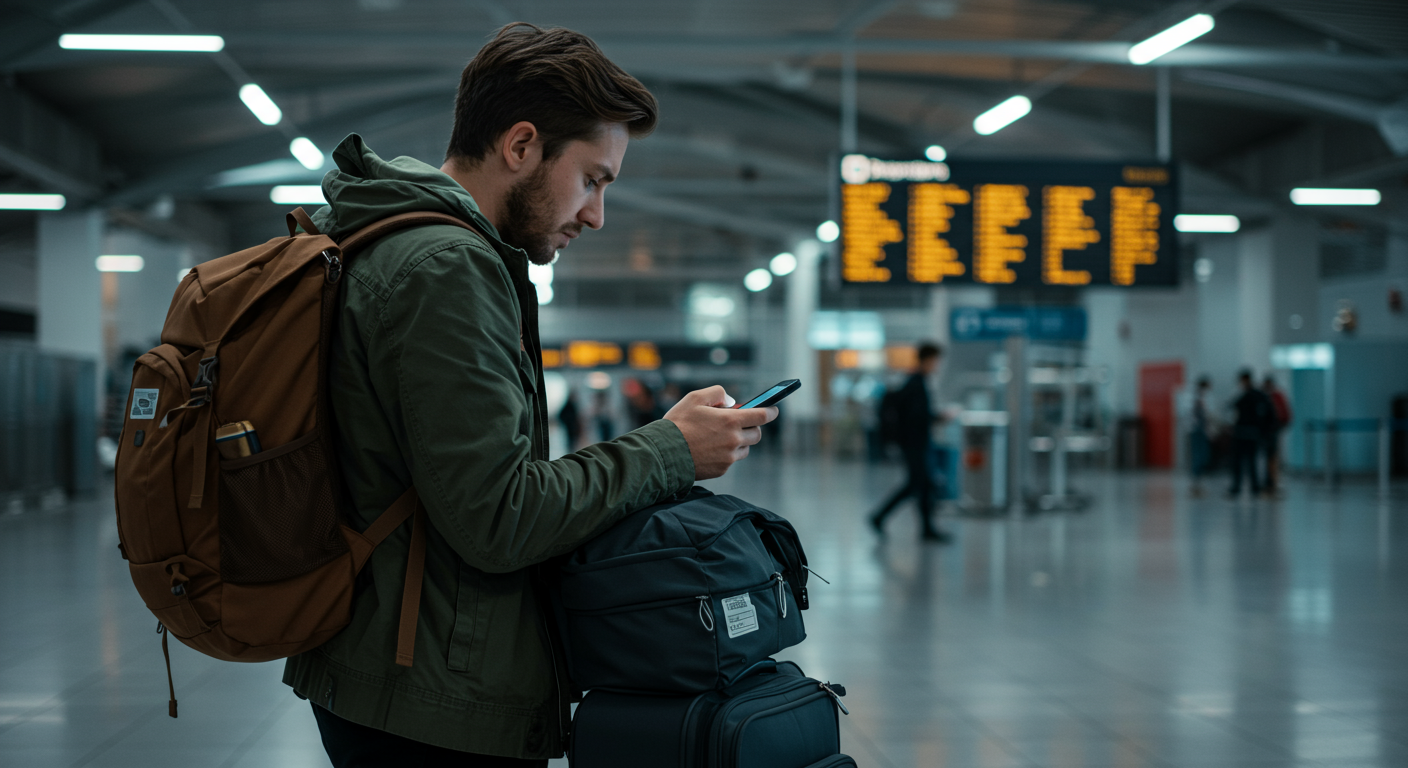Brief intro acknowledging the problem and promising solution

The Problem: What's Really Happening
Lost luggage is a nightmare scenario for any international traveler. It disrupts your itinerary, causes stress, and can lead to significant financial loss. Whether you're a budget traveler or a seasoned globetrotter, dealing with missing bags requires a swift and informed response. This guide provides a step-by-step action plan to help you navigate this stressful situation.
Why This Affects International Travelers
International travel amplifies the impact of lost luggage. You might be far from home, unable to access essential items, and facing complex airline policies that vary by country. Delays in resolving the issue can be longer, and communication can be challenging due to language barriers and time zone differences. Solo travelers, in particular, are vulnerable because they don't have a travel companion to assist with immediate needs and communication.
Root Causes Analysis
Several factors can contribute to lost luggage: mishandling by airport staff, missed connections, errors in transferring luggage between airlines (especially with codeshare flights), and even theft. Identifying the root cause isn't always easy, but understanding the possibilities helps you take proactive measures and understand the airline's responsibility.
Step-by-Step Solution Framework
1. Immediate Actions at the Airport:
- Report the Loss: Immediately report the lost luggage to the airline's baggage services at the arrival airport. Obtain a Property Irregularity Report (PIR) with a reference number. This is crucial for tracking and compensation. Keep a copy for your records.
- Gather Documentation: Collect copies of your flight tickets, baggage tags, and any receipts for essential items you may need to purchase (e.g., toiletries, clothing).
- Check for Immediate Needs: Inquire about an emergency kit from the airline, or if they can provide any immediate compensation for essential purchases. Keep receipts for reimbursement later.
2. Tracking Your Luggage:
- Use the PIR Reference Number: Utilize the airline's online tracking system, or if available, the WorldTracer system (a global lost and found service used by many airlines) to monitor your luggage's status.
- Contact the Airline Regularly: Follow up with the airline daily, or as instructed, to get updates on the search. Keep a record of all communications, including names, dates, and times.
3. Understanding Your Rights and Airline Policies:
- Montreal Convention: Most international flights are covered by the Montreal Convention, which sets limits on airline liability for lost, delayed, or damaged baggage. You are entitled to compensation for reasonable expenses incurred due to the delay.
- Airline-Specific Policies: Review the specific policies of the airline you flew with. These policies outline the process for claiming compensation and the types of expenses covered.
- Documentation is Key: Keep all receipts, tickets, and communication records. These are vital when filing a claim.
4. Filing a Compensation Claim:
- Submit a Claim Promptly: File your compensation claim with the airline as soon as possible, typically within the timeframe specified in their policy (usually within days or weeks of the luggage being declared lost).
- Provide Detailed Information: Include your PIR number, flight details, a list of lost items (if known), and copies of all supporting documentation. Be as specific as possible about the items and their value.
- Negotiate if Necessary: If the initial offer is insufficient, negotiate with the airline. You can also seek advice from a consumer protection agency or a legal professional.
5. Long-Term Solutions and Prevention:
- Travel Insurance: Consider purchasing travel insurance that covers lost luggage. This can provide additional compensation and assistance.
- Pack Smart: Keep essential items (medication, valuables, a change of clothes) in your carry-on luggage.
- Use Luggage Tracking Devices: Consider using luggage trackers like Apple AirTags or similar devices to monitor your bag's location.
Prevention Strategies
- Label Your Luggage Clearly: Use sturdy luggage tags with your contact information inside and outside your bags.
- Take Photos: Photograph the contents of your luggage before your trip as proof of ownership and value.
- Arrive Early: Check in early to reduce the risk of your luggage being delayed due to rushed handling.
- Direct Flights: Opt for direct flights whenever possible to minimize the chances of mishandling during transfers.
When to Seek Professional Help
If the airline is unresponsive, the compensation offered is inadequate, or you are facing significant issues, consider seeking professional help. Several services specialize in assisting with lost luggage claims:
- Legal Professionals: A lawyer specializing in aviation law can assist with complex claims.
- Flight Compensation Services: Services like AirHelp can help you navigate the claims process and pursue compensation on your behalf.
International Legal Protections
International agreements like the Montreal Convention provide a framework for passenger rights. These agreements establish liability limits and ensure that airlines are responsible for lost, delayed, or damaged baggage. Your rights also depend on the specific country's consumer protection laws, so research the laws in the country where your luggage went missing or where you are filing the claim.
Your Action Checklist
- Report the loss immediately and get a PIR.
- Track your luggage online or with the airline.
- Keep all receipts and documentation.
- File a compensation claim within the airline's specified timeframe.
- Consider professional assistance if needed.